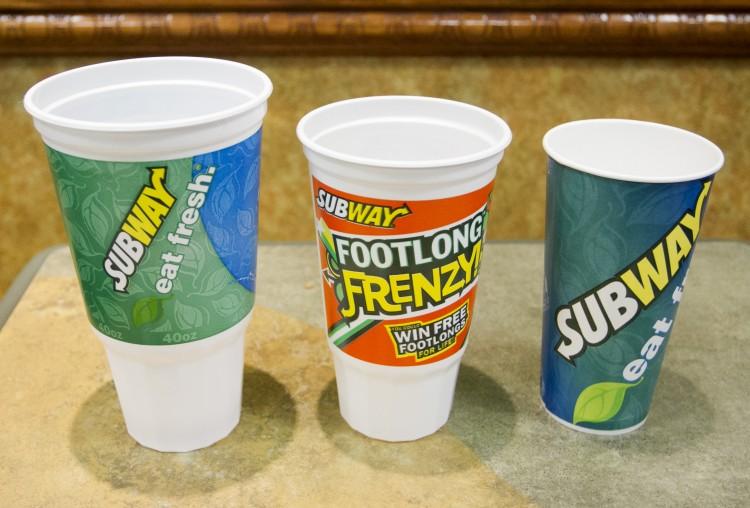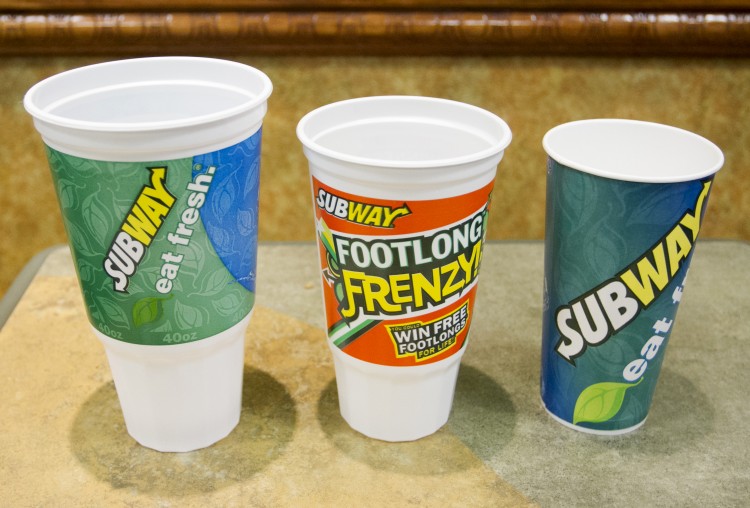Mayor Michael Bloomberg’s soft drink ban seems to be inspiring similar proposals.
Soft Drink Ban Possibly Inspiring Other Bans
Mayor Michael Bloomberg’s soft drink ban seems to be inspiring similar proposals.

A line of drink cups ranging from 7 ounces to 64 ounces with their corresponding sugar content, at a briefing at City Hall when the proposed ban was first announced in May 2012. Christian Watjen/The Epoch Times

Zachary Stieber
Senior Reporter
|Updated:
Zachary Stieber is a senior reporter for The Epoch Times based in Maryland. He covers U.S. and world news. Contact Zachary at [email protected]
Author’s Selected Articles





